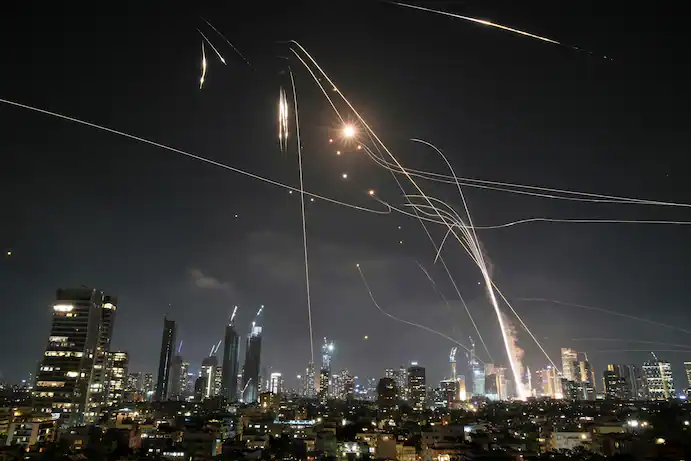Ukraine reported Saturday that Russia fired more than 620 drones and missiles overnight in one of the largest aerial assaults of the war, killing at least four civilians and wounding dozens across multiple regions.
The attacks came as US-led peace efforts stalled and Kyiv renewed calls for tougher sanctions against Moscow.
Ukrainian President Volodymyr Zelensky detailed the scale of the assault: “Twenty-six cruise missiles and 597 attack drones were launched, of which more than half were ‘Shaheds'” – referring to Iranian-made drones.
Ukrainian air defenses intercepted 319 Shahed drones and 25 missiles, but at least one missile and 20 drones struck five locations, according to military officials.
The strikes caused casualties far from frontlines, with Zelensky reporting “at least two people killed and 20 wounded in Chernivtsi” in western Ukraine.
Regional authorities added six wounded in Lviv, two dead in Dnipropetrovsk, and three injured in Kharkiv. The Russian defense ministry claimed it targeted military-industrial sites and an airfield.
The bombardment follows Friday’s Ukrainian attacks that killed three in Russia and comes as diplomatic efforts flounder. US envoy Keith Kellogg arrives Monday amid stalled Washington-led peace talks.
Kremlin spokesman Dmitry Peskov reiterated Moscow’s opposition to European peacekeepers after French President Emmanuel Macron claimed allies have a ceasefire plan “ready to go…in the hours after a ceasefire.”
Zelensky urged faster Western action: “The pace of Russian air strikes requires swift decisions and it can be curbed right now through sanctions,” specifically targeting drone suppliers and Russian oil revenues. His appeal follows Washington’s controversial pause on some arms deliveries to Ukraine earlier this month.
The attacks unfolded as a key UN-brokered deal facilitating Russian food and fertilizer exports nears its July 22 expiration without renewal. Moscow complains the agreement fails to shield it from secondary sanctions, while global food security concerns persist.
With United States President Donald Trump and Vladimir Putin’s Thursday call yielding no breakthrough, and Kyiv demanding more than “just signals” from allies, the war enters its fourth year with escalating aerial assaults and diminishing diplomatic prospects.
Russia maintains its objectives of eliminating Ukraine’s NATO aspirations and what it calls the conflict’s “root causes.”
